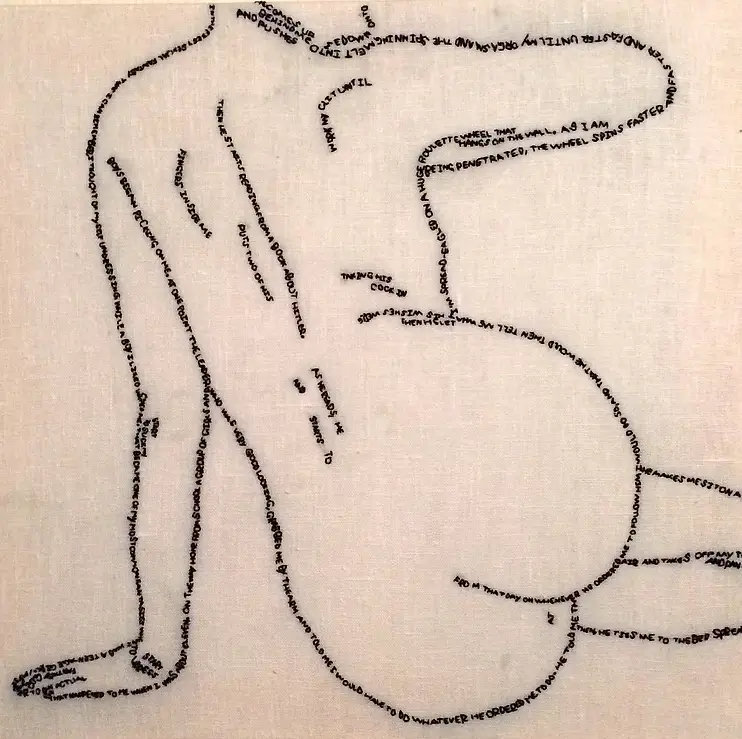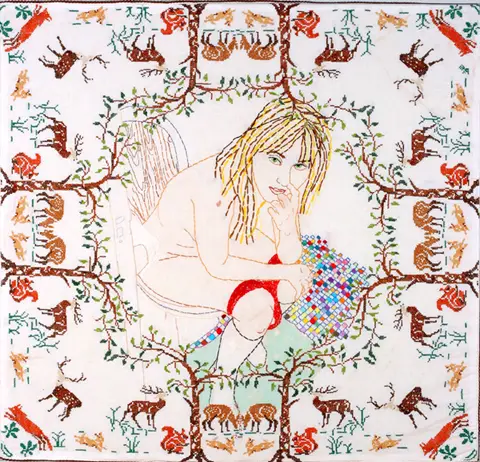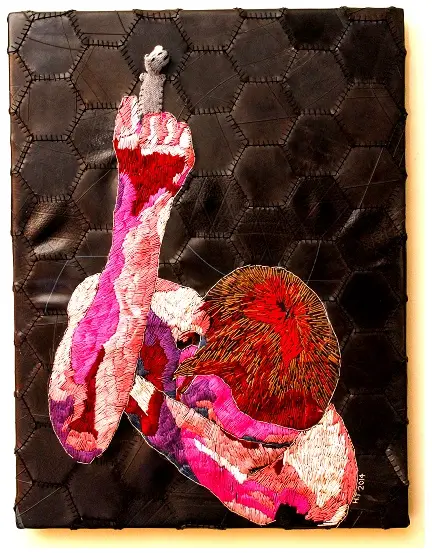For LA-based artist Ellen Schinderman, the path to contemporary textile art stardom began back in 2007, when she became intrigued by what porn would look like rendered in needlepoint.
Encouraged by erotica transformed into stitch, Schinderman tapered off her performing career as an actor and writer, and fell down what she calls the “stitching rabbit hole.” For the last seven years she has been making her art, exhibiting in galleries in Miami, New York and Seattle, curating shows, and writing about contemporary needle craft, including for Mr X Stitch, where she writes a monthly column called Curationism.
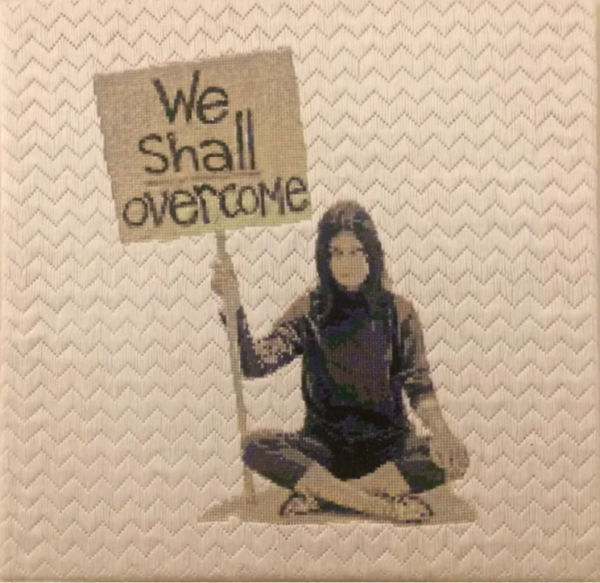
In her artwork, Schinderman has continued to explore erotic imagery (her artwork was once featured in a spread in Hustler magazine) but you’d be mistaken if you thought her subject matter was a one-dimensional representation of coitus. She approaches sex and culture with an open-hearted, inclusive sense of humor. And her celebration of the feminine expands beyond the binary, biological assignment of male/female.
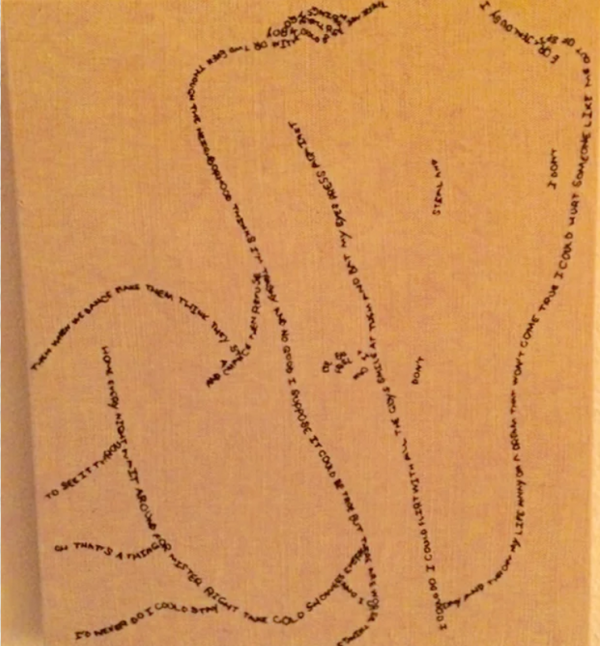
Many of you know Schinderman from the hugely popular Stitch Fetish shows she curates in LA, now in its fifth year. That’s how I met Ellen, when she included my work in the last two shows. But like many of you, I’ve watched and admired her huge presence in online, contemporary embroidery community before ever meeting her.
What follows is an email conversation about Schinderman’s work as both an artist and a curator.
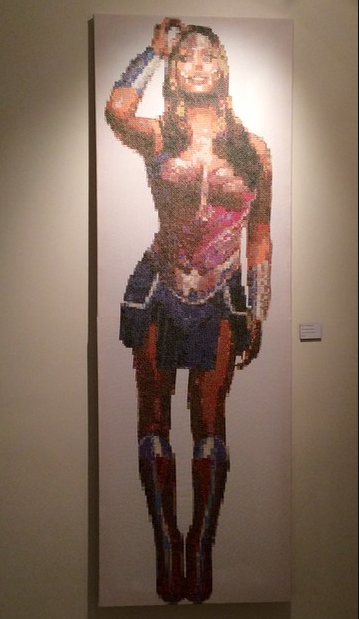
I’ve been following your work for a long time and I’m amazed by the quality and amount of artwork you create, both for gallery shows and for commissions. You also curate the highly successful Stitch Fetish shows in LA and are launching a new SF show in San Francisco this fall. What are the challenges of doing both, of being both a working artist and a curator? Does one take precedence over the other?
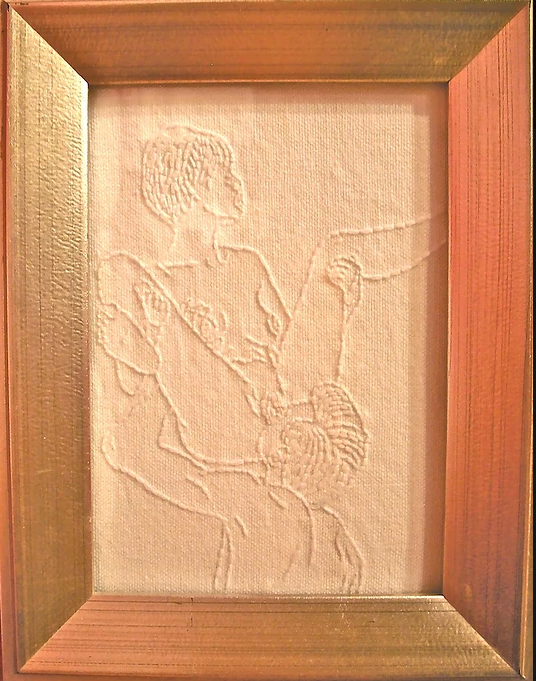
I’m not sure it’s precedence so much as, “Oh crap, you have to do this now… Okay, now that!” I keep a lot of lists, and smaller lists within each list. I have a master list of upcoming shows I’m making for and what (I think) I’m making for each one. The shows I’m curating are on the list like any other show I’m in as an artist. Then I have the ongoing lists of people I’d like to work with in particular shows, people who I’d like to work with at some point, show ideas, not to mention the organizational lists that going during the actual curation of a show.
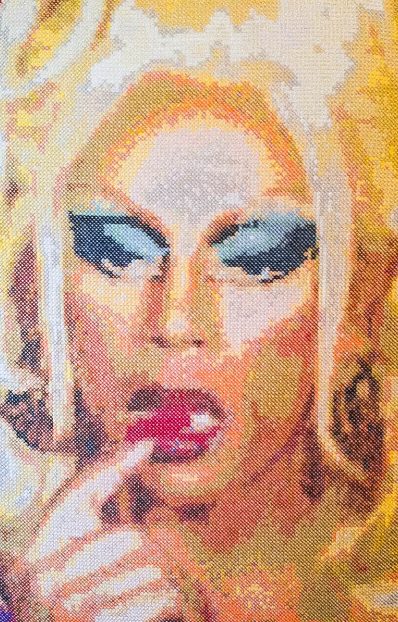
Curating is just more art. I see curating as another way to present my perspective, a broader way to talk about a topic, because I can show more work than I could produce in a set span of time, and with many more points of view, that still reflect or speak to my perspective.
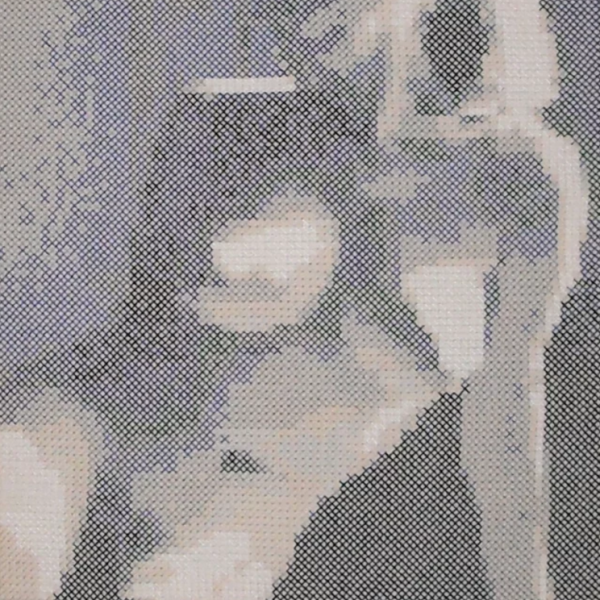
In terms of your process translating imagery into your art, how do you organize your projects/ideas? Do you keep a sketchbook, journal or clip file?
I’m a notebook gal (again, the lists). I don’t sketch stuff, I keep lists of concepts. so the text ladies, for example, I thought of doing years before I got around to stitching them, I wrote it down when I thought of it.
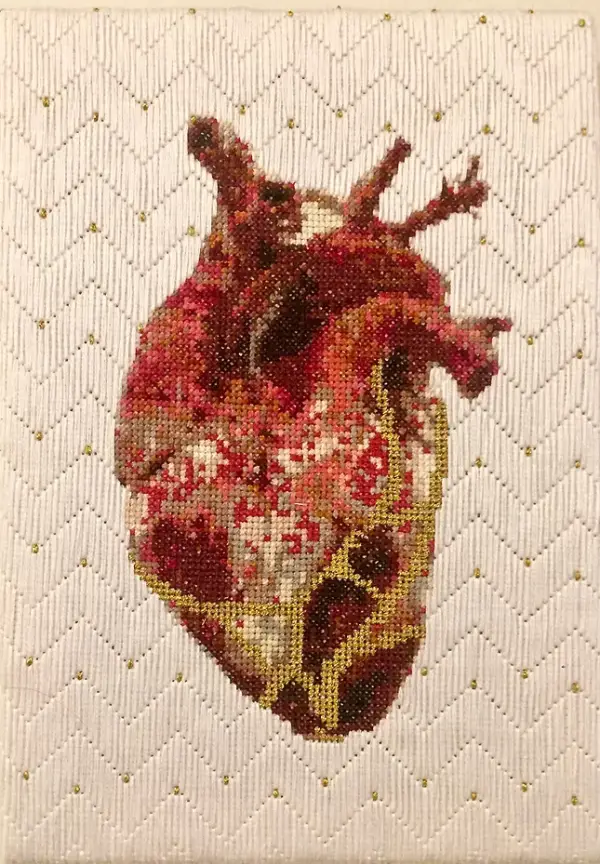
A lot of my work comes from thoughts that amuse me, weird conversations, mocking my own work… so I just jot stuff down knowing that when I get through whatever’s on my plate, at some point I’ll get to it.
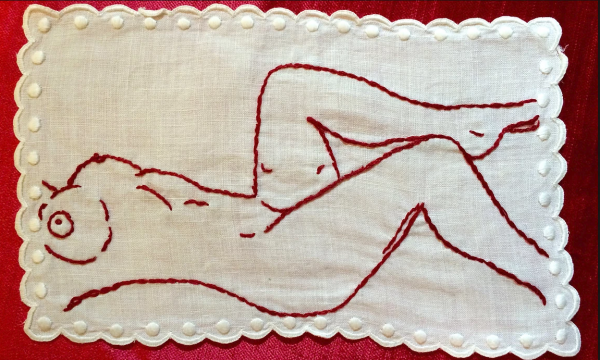
I love how you play with line in your female nudes. First with the simplicity of the redwork stitch in your 99 Nudes doily series and then in the marvelous stitched text lines of the Text Ladies series. Can you tell us about Text Ladies series and the inspiration for using text as line? Also, what is the source of the text?
The 99 doilies are all stem stitch (and ongoing 40 something so far, I need to get back to them), the text ladies are back stitch.
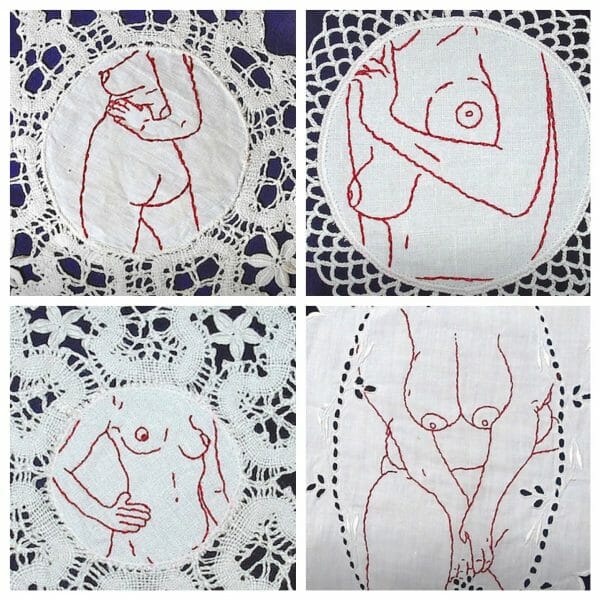
The idea for the text ladies was just one of those, “Oh that would look interesting” moments and I jotted it down, years ago. The text varies, but it’s mostly feminist tracts or women discussing their bodies or sexuality/relationships. The first few pieces in the series were from “My Secret Garden,” by Nancy Friday, published in the 70s. It was the first collection of women’s sexual fantasies; before that no-one even acknowledged that women had sexual fantasies.
One of my women is the text of “Schrodinger’s Rapist” by Phaedra Starling, one is “Still I Rise,” by Maya Angelou.
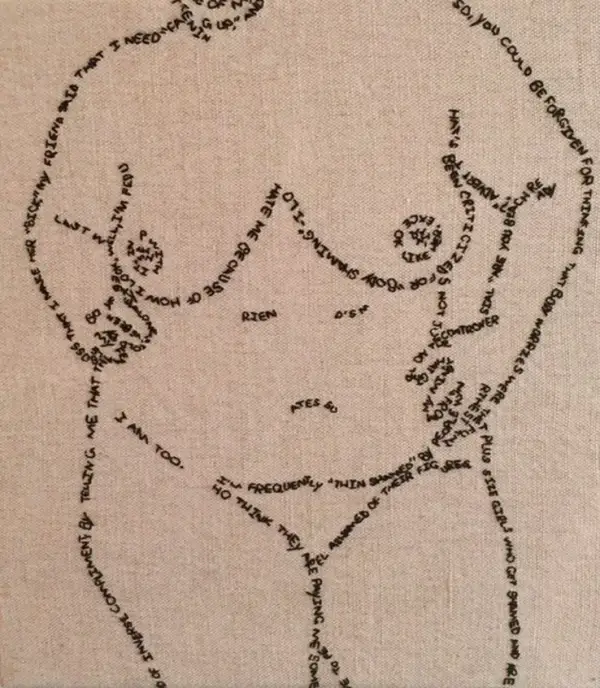
I haven’t made one in a bit, but I’m planning a large one for an upcoming show, using a children’s book I was raised on that was published in ’69 and is really heavy handed in telling girls who they should be and what they should look for in a husband (someone just like daddy!).
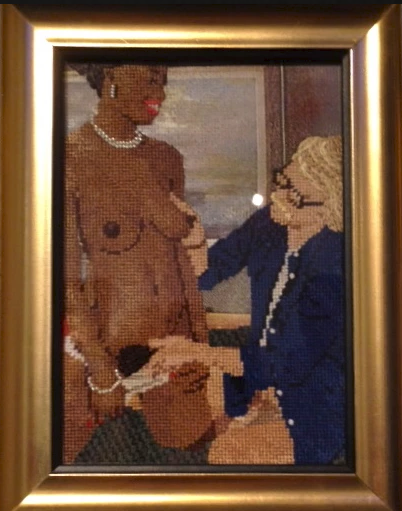
Explorations of sexuality and female pleasure are reflected in both your work as an artist (the Erotica series, in particular) and in your work as a curator (of the Stitch Fetish shows) Have you ever had to face a strong, uncomfortable response to your artwork? If so, how did you address this?
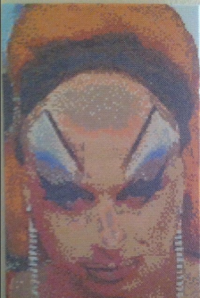
Not really. People are generally amused, drawn in… There’s a lot of joy in seeing something you know (stitchery, or porn for that matter) in a new way. A comment I hear a lot is, “My grandma did that.” Followed almost immediately by, “Not like that though!” And Stitch Fetish is nothing but joy!
One of my very favorite things every year is Stitch Fetish Art Walk. Downtown LA has a rich and varied art walk culture that ranges from collectors to local kids, from families to a strong LGBTQ+ community, and they all come together to enjoy art and just go out. Watching local kids enjoy Stitch Fetish, laugh, and then look at me to make sure it’s okay to laugh… I encourage the hell out of them! Laugh!! It is funny! The art is funny! Sex is funny! A crocheted woman with giant boobs, lactating is nuts! It’s awesome!
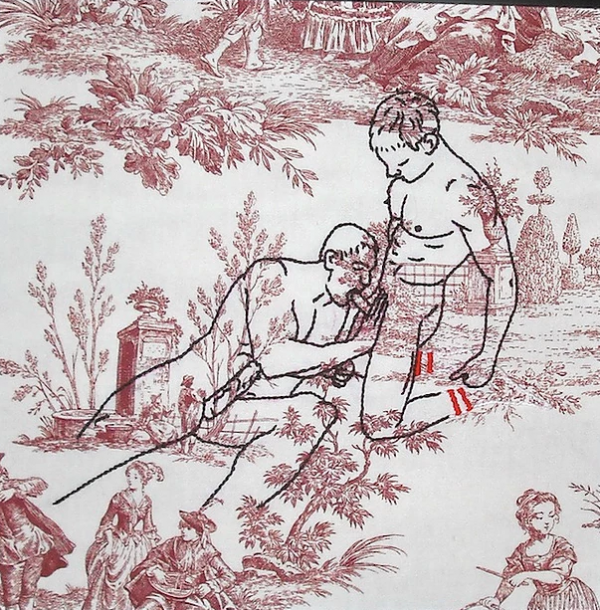
A lot of people take both sex and art very seriously, and they can be serious things, but they can also be a hell of a lot of fun. And I really hope people are laughing and having fun while they make art and love. Otherwise, what’s the point of any of it?
The large scale cross stitch… what can I say? Damn. They are beautiful and brilliant. They seem to break apart the at times fussy, tight texture of cross stitch into these big, luminous canvases that are filled with almost pixilated stitch. What can you tell us about the Bad in the Blood, 2012, piece? What has been the reaction when people have seen the work in person?
That piece really seems to speak to a lot of people. It’s my mom when she was in her mid 20s; she says she may have been pregnant with me. Ironic, she’s always told me what a glorious pregnancy she had, how joyous she was… the portrait belies that. The reaction is always strong, and people want to talk to me about her, which can be a bit much sometimes as she’s… difficult.
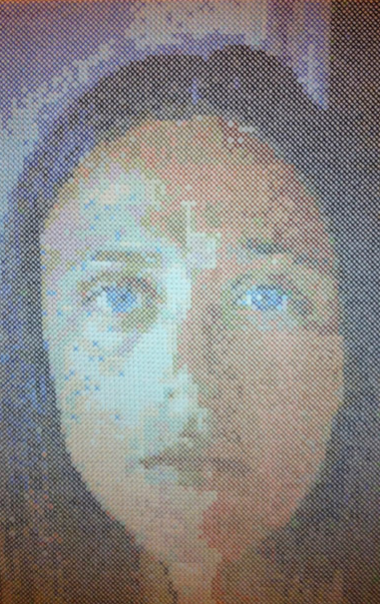
With the large-scale pieces, I really wanted to push the form and its size constraints – the time it takes vs the ground covered. I think the openness of the stitches contributes to that dreamy, watercolor-y, washed out feeling they get. Also, I tend to use Anchor floss, which is a bit less shiny than DMC.
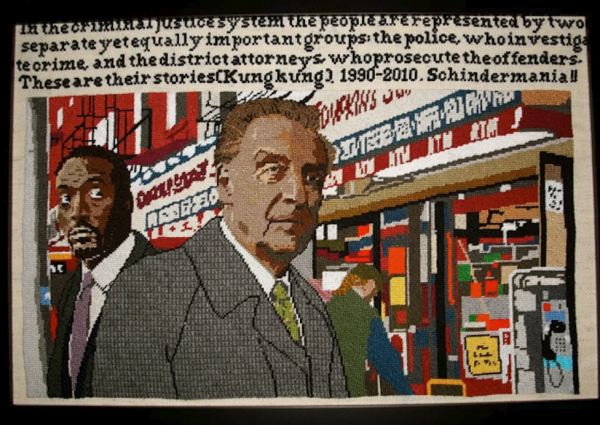
Finally, what are you currently working on or what new projects are you excited about in the near future?
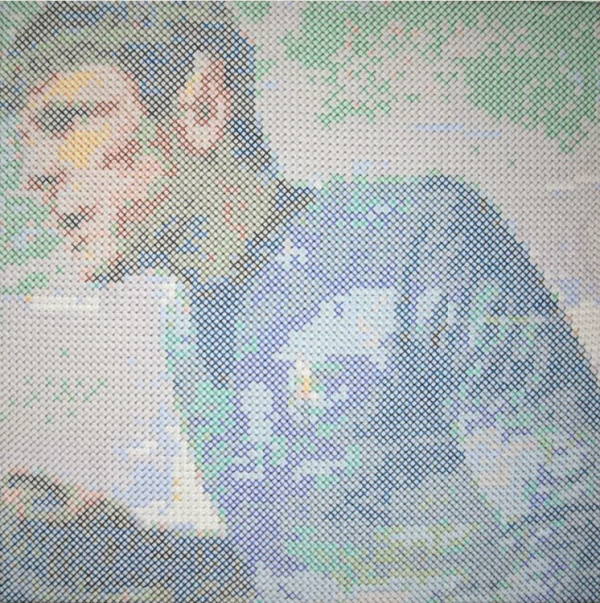
Oh my gods, so much. I’m super proud and excited to be showing with ArtShare LA this summer. I’ll be displaying some of my text ladies, and as I mentioned, I’m going to be making a new, larger piece for that. Obviously Stitch Fetish San Francisco is exciting, but I’m also curating my first show that is not Stitch-centric, in September, here in LA. The show is called Neighborhood Girls, and it’s all work by LA female artists and I’m thrilled about it! There’s so much good!
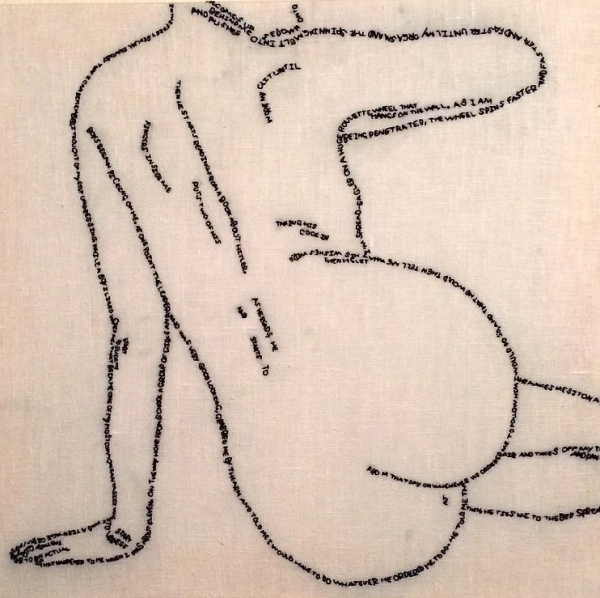
I’m making a new piece for an erotica show at Spoke SF, and, of course, I’m super proud and pleased to be a part of the Mr. X family, with both Curationism and as a designer in the upcoming Xstitch mag.
********************************************************************
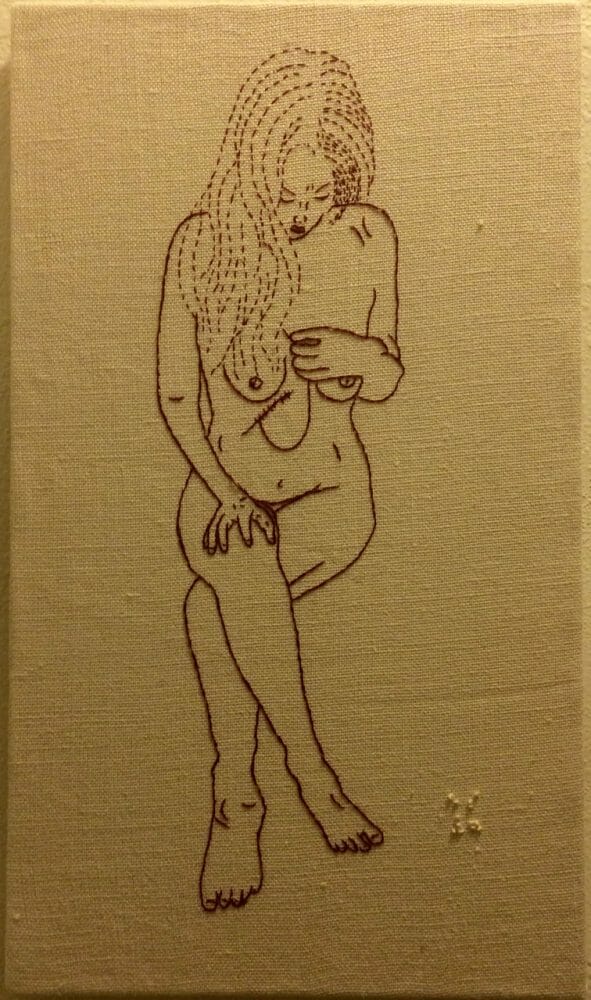
You can see more of Schinderman’s art and vibrant life on her website and by following her Instagram.
She is a huge advocate for contemporary needlework artists. As artist Mark Bieraugel told me in an interview about Stitch Fetish 5, “Having a curator like Ellen Schinderman validate your work and have it in a show is super thrilling.”
It’s thrilling to engage with her artwork, too.

